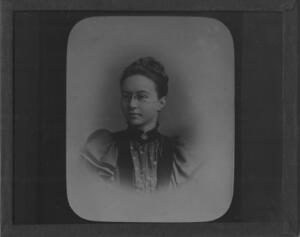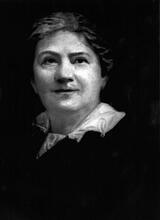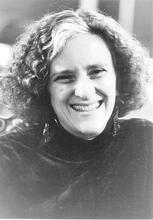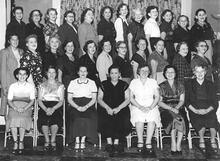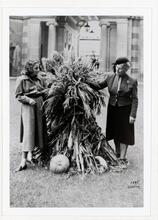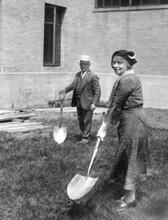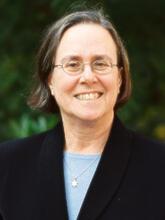Fanny Binswanger Hoffman
Fanny Binswanger Hoffman focused the Conservative Movement’s National Women’s League’s efforts on Jewish education for children and greatly expanded the organization’s membership. Hoffman focused her career on children’s education. She was the first principal of the Mikveh Israel Sunday school in Philadelphia and founded the Young Women’s Union of Philadelphia, later known as the Jewish Neighborhood Center. She was the founding president of the Philadelphia branch of the National Council of Jewish Women and from 1919 to 1928 served as the second president of the National Women’s League, later known as the Women’s League for Conservative Judaism. In both organizations, she focused on Jewish education programs for children.
Article
Fanny Binswanger Hoffman belonged to a distinguished American family with roots deep in American history. Her father, Rabbi Isidor Binswanger, was head of the Moses ben Maimon (Rambam), b. Spain, 1138Maimonides School in Philadelphia, the first Jewish institution of higher learning in the United States. Hoffman followed in her father’s footsteps, dedicating her life to Jewish education for children.
Fanny Binswanger Hoffman was born in Philadelphia in 1862 to Rabbi Binswanger and Elizabeth Sophie (Polock). As a young woman, she knew the advantages that culture could offer. Her own schooling in the United States and in Europe, her wide travels, and her deep appreciation of the best in American Jewish life helped prepare her for responsible leadership in her adult years.
While still a young woman, Fanny became the first principal of the Sunday school of the Ritual bathMikveh Israel Congregation in Philadelphia. Later she helped to found, and became the first president of, the Philadelphia branch of the National Council of Jewish Women. Her chief interest lay in working with children. A pioneer in teaching at a period when young girls were not accustomed to leaving their homes to study or work, she became one of the first Jewish female kindergarten teachers in the United States. Her love of children led her to found the Young Women’s Union of Philadelphia, later called the Jewish Neighborhood Center.
In Philadelphia, she met and married Charles I. Hoffman, a lawyer who later gave up the law to study for the rabbinate in England. When they returned to Philadelphia, they raised their five children in the full tradition of Judaism and gave them the finest that American educational facilities could offer.
As the second president of the National Women’s League (later, Women’s League for Conservative Judaism, Fanny Hoffman was personally selected by Mathilde Schechter, whom she had first met in England, and served from 1919 to 1928. Hoffman’s great contribution to the National Women’s League was to carry forward and expand the work begun by Mathilde Schechter and to reinforce the league’s program of Jewish education for children. By personal example, in the practice of Judaism and in her love for Jewish tradition, this “aristocrat of the spirit, whose innate fineness expressed itself in simplicity and humility,” won the allegiance of thousands of synagogue women to the National Women’s League’s aims and goals.
Fanny Binswanger Hoffman died on August 15, 1949.
National Women’s League of the United Synagogue of America. They Dared to Dream (1968).
NYTimes, April 16, 1948, 19:3.
Women’s League for Conservative Judaism. Seventy-Five Years of Vision and Voluntarism (1992).
WWIAJ (1926).

